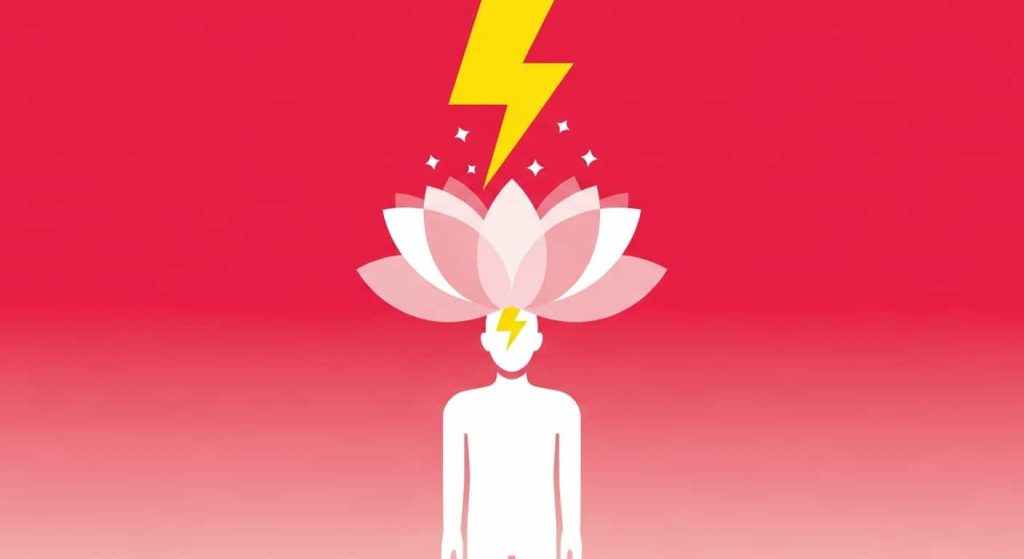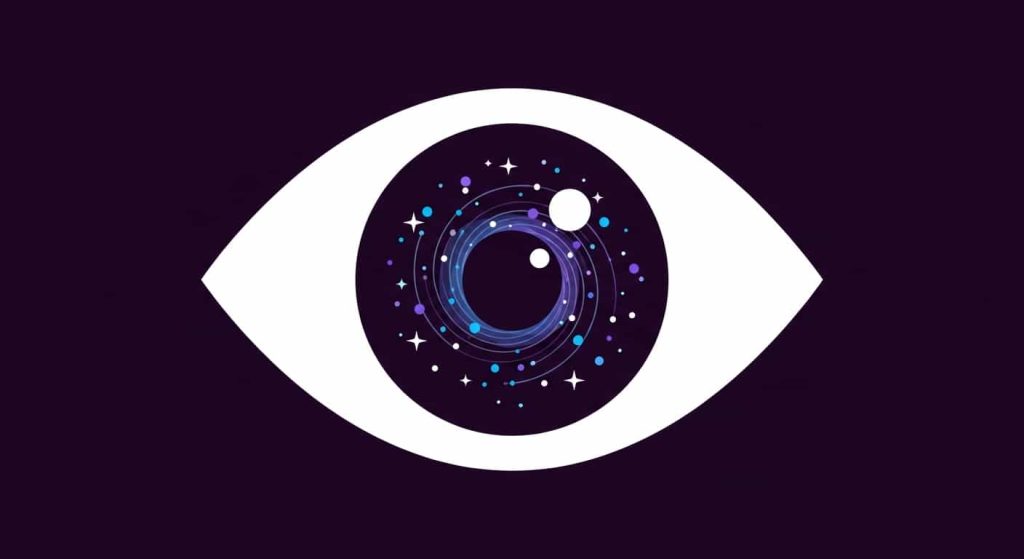In countless spiritual traditions across the globe, the mirror is revered not just as a physical object, but as a profound symbol of a fundamental truth: your external reality is a direct reflection of your internal state. This concept, often called Mirror Theory in Spirituality, suggests that the people, events, and circumstances of your life are not random. Instead, they are reflections of your own consciousness, beliefs, and unresolved energies.
This spiritual perspective asks us to look at our lives in a radically new way. Instead of seeing ourselves as victims of circumstance, we are invited to see ourselves as co-creators of our reality. The spiritual symbolism of mirrors is a powerful call to look inward for answers. It proposes that if you want to change your life, you must first change yourself. The outer world is simply a reflection.
This article will journey into the heart of the mirror principle in spirituality. We will explore how your inner world is reflected in your outer world, how this principle is the key to profound personal growth, and what it means to forge a true mirror and a soul connection. Get ready to discover that the universe is your greatest teacher, and its primary teaching tool is a mirror.
The Core Principle: As Within, So Without

The cornerstone of spiritual mirror theory is the Hermetic principle, “As within, so without. As above, so below.” This ancient axiom teaches that there is a correspondence between different planes of existence. The macrocosm (the universe) reflects the microcosm (the individual), and our inner world (thoughts, feelings, beliefs) shapes our outer world (experiences, relationships, environment).
The mirror principle in spirituality is the practical application of this idea. It suggests that everything in your life is a piece of feedback. It is the universe reflecting your own energy to you so you can see it more clearly.
Consider these common scenarios:
- Do you constantly find yourself in relationships with emotionally unavailable people? The mirror principle would suggest looking at your own emotional availability. Is there a part of you that is closed off or afraid of true intimacy?
- Do you feel that you are never recognized or appreciated for your hard work? The mirror might be reflecting a lack of self-appreciation. Do you truly value your own efforts, or are you constantly seeking external validation?
- Are you frequently annoyed by people you perceive as arrogant or loud? The mirror may be showing you a trait that you either possess and deny (your “shadow”) or a quality you secretly wish you had more of (e.g., the confidence to take up space).
Seeing life through this lens is a radical shift in responsibility. It moves you out of a victim mindset (“Why does this always happen to me?”) and into an empowered state of self-inquiry (“What is this situation trying to show me about myself?”).
The People in Your Life as Your Clearest Mirrors

While all of life is a reflection, the most powerful and often most challenging mirrors are the people we interact with, especially those in our closest relationships. Mirror Theory in Spirituality teaches that every person who enters your life, particularly those who trigger a strong emotional reaction in you (positive or negative), is a mirror.
There are generally three ways people act as mirrors for us:
- Mirroring Your Disowned Self (The Shadow): This is when someone exhibits a trait that infuriates or deeply irritates you. Often, that intense emotional charge is a sign that they are mirroring a part of yourself that you have repressed or denied. This is your “shadow self,” the collection of traits you consider unacceptable. For example, if you can’t stand people you see as “lazy,” it might be because you work relentlessly and have disowned your own need for rest. Their laziness mirrors your own repressed desire to slow down, and your judgment of them is a reflection of your judgment of that part of yourself.
- Mirroring Your Own Behavior: Sometimes, the mirror is more direct. A person may treat you exactly the way you treat yourself or the way you treat others. If you are highly critical of yourself, you may attract people who are critical of you. If you betray the trust of others, you may find yourself being betrayed. This is not a punishment; it is a direct reflection designed to bring your own behavior into your awareness.
- Mirroring Your Divine Potential: Not all mirrors are about negative traits. Sometimes you meet someone and are completely in awe of them. You might be struck by their incredible creativity, their boundless compassion, or their fearless authenticity. This powerful admiration is also a reflection. That person is mirroring the qualities that exist within you but are still dormant or underdeveloped. The beauty you see in them is a reflection of your own potential, calling to be awakened.
Understanding this turns every relationship into an opportunity for profound self-discovery and a key part of the mirror principle in personal growth.
The Mirror and the Soul Connection: Cleaning Your Perception

If the outer world is a reflection of the inner world, then what happens when the reflection seems dark, chaotic, or painful? Spiritual traditions teach that this is not a sign that you are “bad,” but rather that your mirror of perception is clouded. The goal of spiritual work is not to change the reflection, but to “clean the mirror.”
The “dirt” on the mirror represents our limiting beliefs, past traumas, unhealed wounds, and egoic attachments. These are the filters through which we perceive reality. When our mirror is dirty, we project our old stories and fears onto the world, and the world reflects that distorted projection back to us.
The mirror and the soul connection is about this process of cleaning. It is the journey of returning to our true essence, which is beneath all the layers of conditioning. Practices that help clean the mirror include:
- Meditation: Quiets the mind and allows you to observe your thoughts and feelings without attachment, helping you distinguish between your true self and the “dirt” of your conditioning.
- Mindfulness: Brings you into the present moment, where you can see things as they are, rather than through the filter of past experiences or future worries.
- Self-Inquiry: Asking deep questions like “Who am I?” or “What is the belief behind this feeling?” helps to uncover and dismantle the limiting beliefs that cloud your perception.
- Shadow Work: The courageous process of looking at and integrating the parts of yourself you have denied or repressed.
As you clean your mirror, your perception shifts. You begin to see the world with more clarity, compassion, and love. And because your inner world reflected in the outer world is a fundamental law, the reflection that comes back to you begins to change. Life feels less like a battle and more like a beautiful, synchronous dance.
The Mirror Principle in Personal Growth: From Trigger to Teacher

The most practical application of Mirror Theory in Spirituality is in how we handle life’s challenges. The mirror principle in personal growth teaches us to see our triggers not as annoyances, but as our greatest teachers. A trigger is any situation or person that elicits a strong, automatic emotional reaction from you.
Here’s how to use the mirror principle when you are triggered:
- Pause and Acknowledge: The moment you feel the charge of anger, anxiety, or sadness, resist the urge to react or blame. Simply pause and acknowledge the feeling. Say to yourself, “I am triggered.”
- Take Ownership: Remind yourself of the mirror principle. This feeling is not because of the other person; it is inside of you. The other person is merely the mirror showing you what is already there. Take 100% responsibility for your emotional response.
- Get Curious: Instead of projecting outward, turn your attention inward. Ask powerful questions:
- “What is the story I am telling myself about this situation?”
- “What belief about myself or the world is being challenged right now?”
- “Where have I felt this way before? Does this remind me of something from my past?”
- “What is this situation mirroring to me that I need to see?”
- Find the Lesson: The trigger is pointing to an unhealed wound or a limiting belief. Perhaps your anger at being interrupted is mirroring a deep-seated belief that you are not important. Perhaps your anxiety about being judged is reflecting a lack of self-acceptance. The lesson is always about bringing love and awareness to a part of yourself that has been in the dark.
By consistently applying this process, you transform your entire experience of life. Difficult people become your gurus. Painful situations become your assignments for healing. Every moment becomes an opportunity to learn, grow, and become more whole. This is the path of using life itself as your spiritual practice.
Conclusion: The Universe in Your Gaze

Mirror Theory in Spirituality is a profound and empowering philosophy. It invites you to see the universe not as a cold, random place, but as a living, intelligent system that is constantly communicating with you. It teaches that life is not happening to you, but for you. It is a feedback loop designed for your evolution.
The people who challenge you, the circumstances that frustrate you, and the patterns that repeat in your life are not punishments. They are gifts. They are reflections from the universe, lovingly showing you where you still have work to do, where you still need to heal, and where you are ready to grow.
The next time you find yourself frustrated with the world outside, remember the mirror. Turn your gaze away from the reflection and look at the source: yourself. Ask what your inner world is creating. Take responsibility for your own perception. Do the work of cleaning your own mirror.
When you do, you will find that the reflection looking back at you begins to change in the most magical ways, revealing a world filled with more peace, love, and grace than you ever imagined was possible. Because the universe is, and always has been, simply reflecting the beauty of your own soul.
